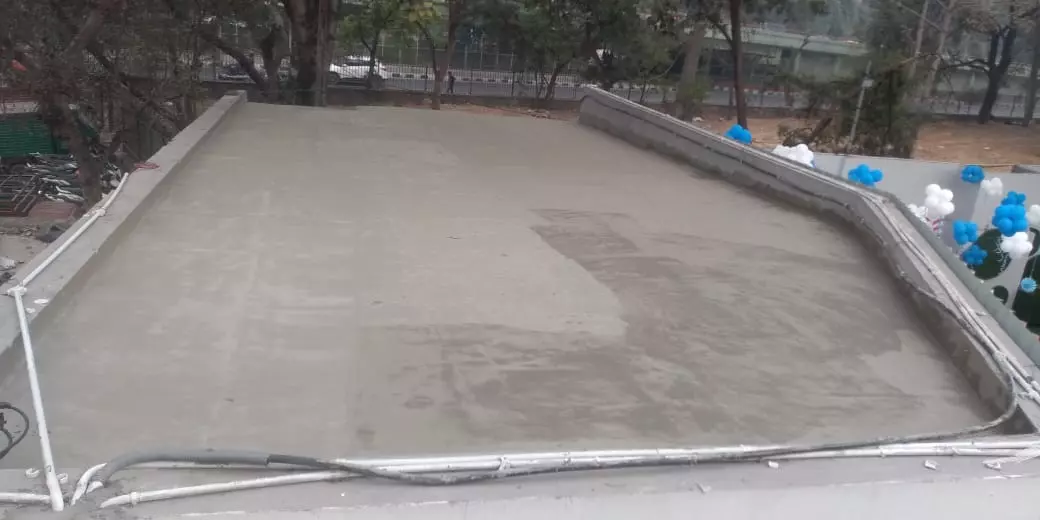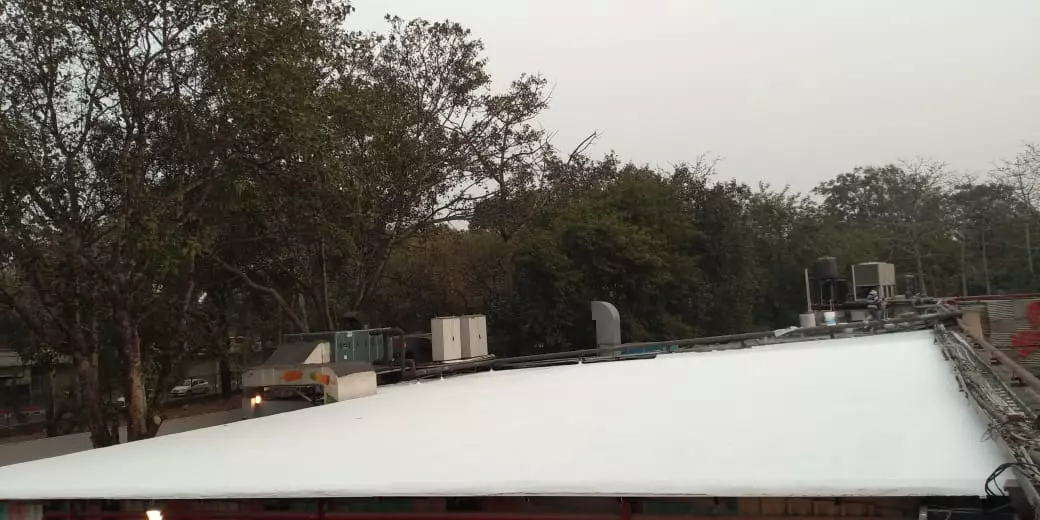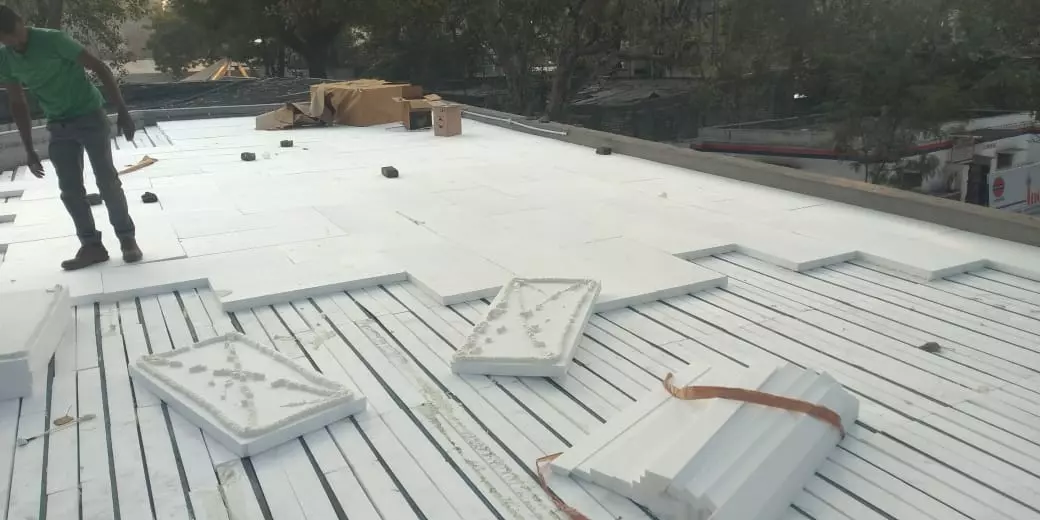Roof Insulation Services
Insulate your roof &
Roof Insulation
Roof insulation is a critical aspect of building construction and maintenance that plays a significant role in energy efficiency and comfort. Whether building a new building or fixing an old one, choosing the suitable roof insulation material is essential for the best results.
Are you tired of high energy bills and an uncomfortable home during the hot and cold months? The solution to these problems could lie on your roof. Improper or inadequate roof insulation can cause significant heat loss in the winter and heat gain in the summer, leading to higher energy bills and a less comfortable living environment.
Advantages
Installing proper roof insulation in your home can offer several benefits, including:
Increased Energy Efficiency: You will experience reduced heat loss in the winter and heat gain in the summer when your roof is adequately insulated. It means your energy bills will be lower, and your home will be more comfortable.
Better indoor air quality: Roof insulation helps keep air from escaping, so there are fewer allergens and pollutants in the air inside.
Increased durability: When your roof is adequately insulated, it helps protect your roof and home from extreme temperature changes. It can make your roof and home last longer and be more durable.
Increased comfort: If your roof is properly insulated, you can enjoy a more comfortable living space with fewer temperature changes and more comfortable overall.
Different Types Of Roof Insulation
External Insulation
External insulation is a roof insulation material that is applied to the exterior of a building. It is typically made of rigid foam boards or sprayed foam attached to the roof deck. This kind of insulation is great for buildings with flat roofs because it creates a barrier that keeps out the weather and helps keep energy from escaping. One of the enormous benefits of external insulation is that it helps reduce the amount of energy required to heat and cool a building. Because it makes a continuous layer of insulation that helps keep heat from escaping through the roof.
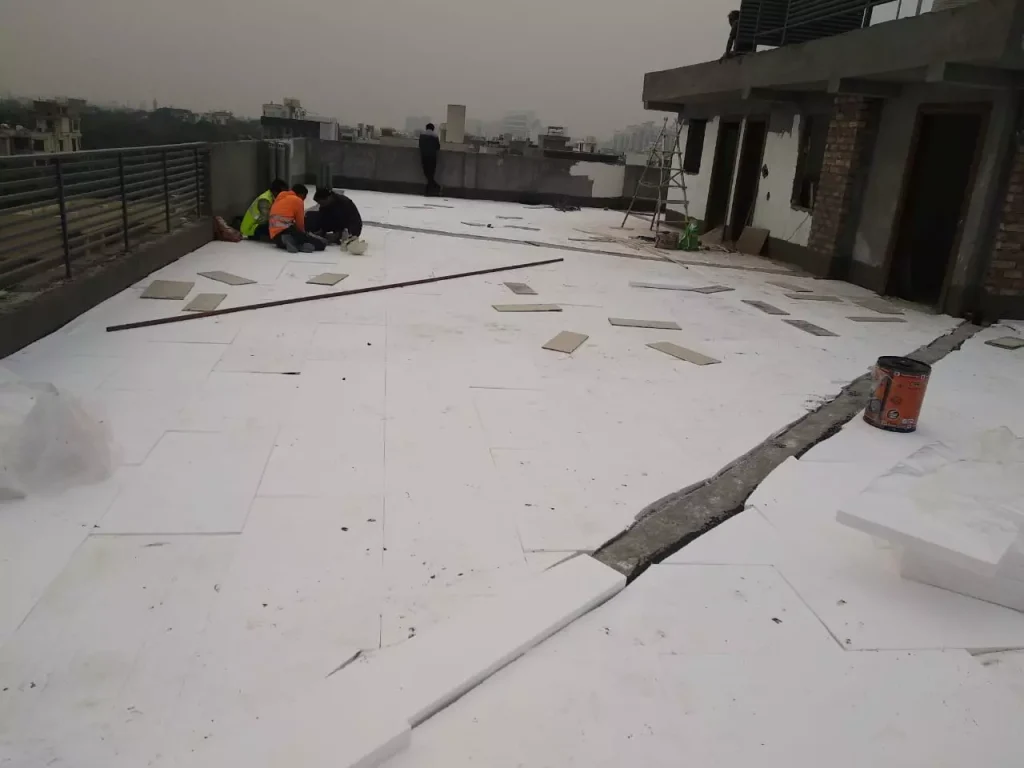

RCC Roof Insulation
RCC (reinforced cement concrete) roof insulation is a type of insulation that is made from a mixture of cement, sand, and aggregate. It is commonly used for buildings with sloped roofs and is applied in layers over the roof deck.
RCC insulation provides several benefits, including increased energy efficiency, improved thermal performance, and reduced sound transmission. It is also a cost-effective solution that provides a durable, long-lasting insulation material.
Metal Roof Insulation
Metal insulation of roof is a type of insulation designed for metal roofing systems. It is typically made from polystyrene, polyurethane, or fibreglass and is installed between the roof deck and the metal roofing.
Metal insulation provides several benefits, including improved energy efficiency, increased thermal performance, and reduced noise transmission. It is also a good insulator that lasts long and is resistant to moisture, mould, and other environmental factors.
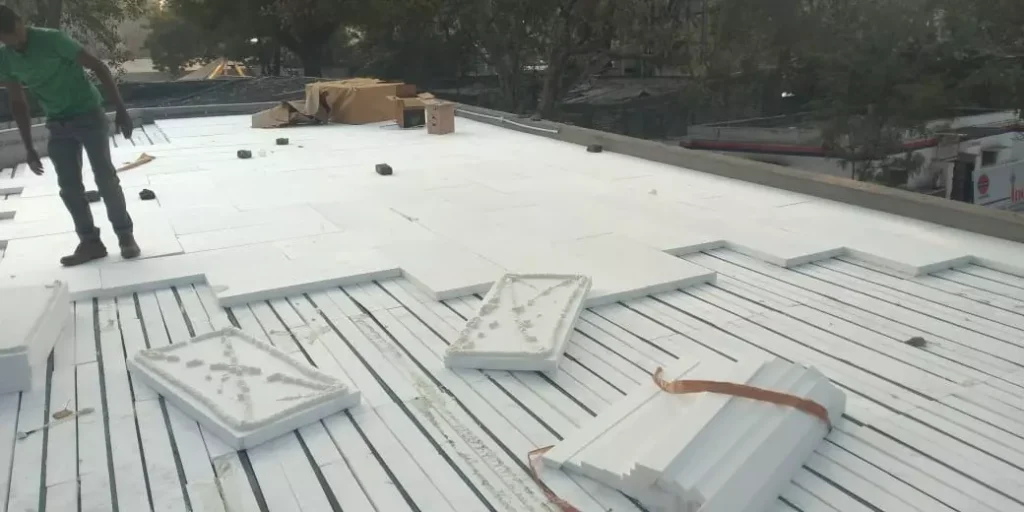
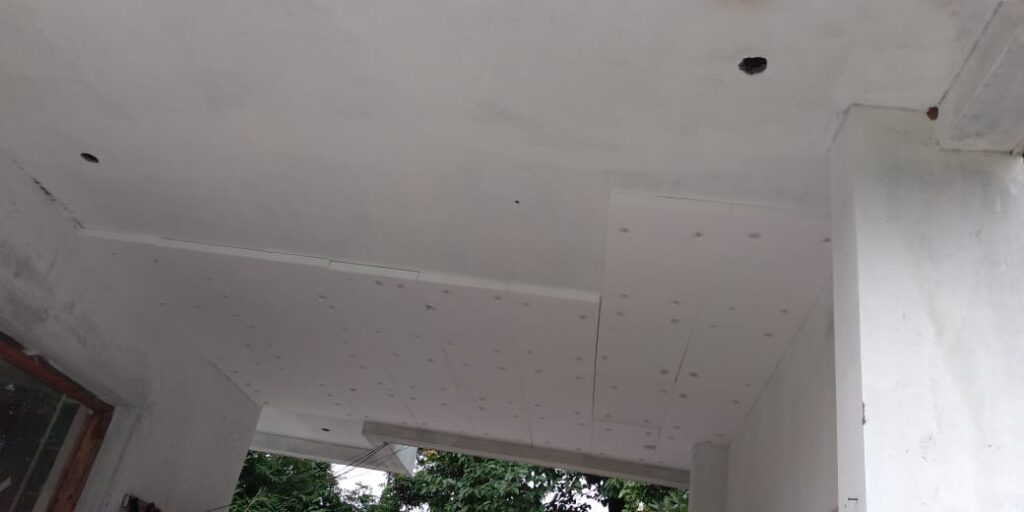
Underdeck Roof Insulation
Underdeck insulation refers to insulation installed between the roof deck and the living space below it in a building. This insulation helps reduce heat transfer from the roof to the living space, leading to improved energy efficiency and lower heating and cooling costs. The insulation material can be installed as rolls, batts, or spray foam. Proper installation of under-deck insulation is important to ensure that it functions as intended and provides the desired energy efficiency benefits. It could mean fixing air leaks around the roof deck and ensuring the insulation is spread out evenly and held in place well.
Overdeck Roof Insulation
Overdeck insulation is put on top of a building’s existing roof deck to make it use less energy. Most of the time, this kind of insulation is used in older buildings that already have a roof deck but don’t have enough insulation to meet current standards for energy efficiency.
By insulating the over-deck, building owners can save money on heating and cooling, make the building more comfortable inside, and reduce their carbon footprint. Most of the time, spray foam, fibreglass batts, and rigid foam boards are used to insulate the over deck.

Types of Roof Insulation Material
Roof insulation helps regulate the temperature inside a building and reduces energy costs. There are several types of roof insulation materials available, including:
Fibreglass is made from recycled glass and is commonly used in residential and commercial buildings. It is available in batts or blown-in forms.
Mineral Wool insulation is made from natural minerals and is resistant to fire, moisture, and pests. It is often used in steel frame construction.
Polystyrene is made from petroleum-based products and is available in rigid board and expanded bead forms. Polystyrene insulation is known for its high insulation value and low cost.
Polyisocyanurate insulation is a foam insulation made from petroleum-based products known for its high insulation value. It is commonly used in commercial roofing systems.
Cellulose is made from recycled paper products and is often treated with fire-resistant chemicals. It is available in a loose-fill form and is commonly used in attics and walls.
Reflective insulation consists of a reflective surface that reflects heat away from the building. Reflective insulation is often used with other types of insulation to improve how well they work.
Want To Know More About Roof Insulation?
If you require roof heat insulation to better insulate your home and maintain a warm internal environment throughout the year, call reliable insupacks for an eco-friendly and long-lasting home.
